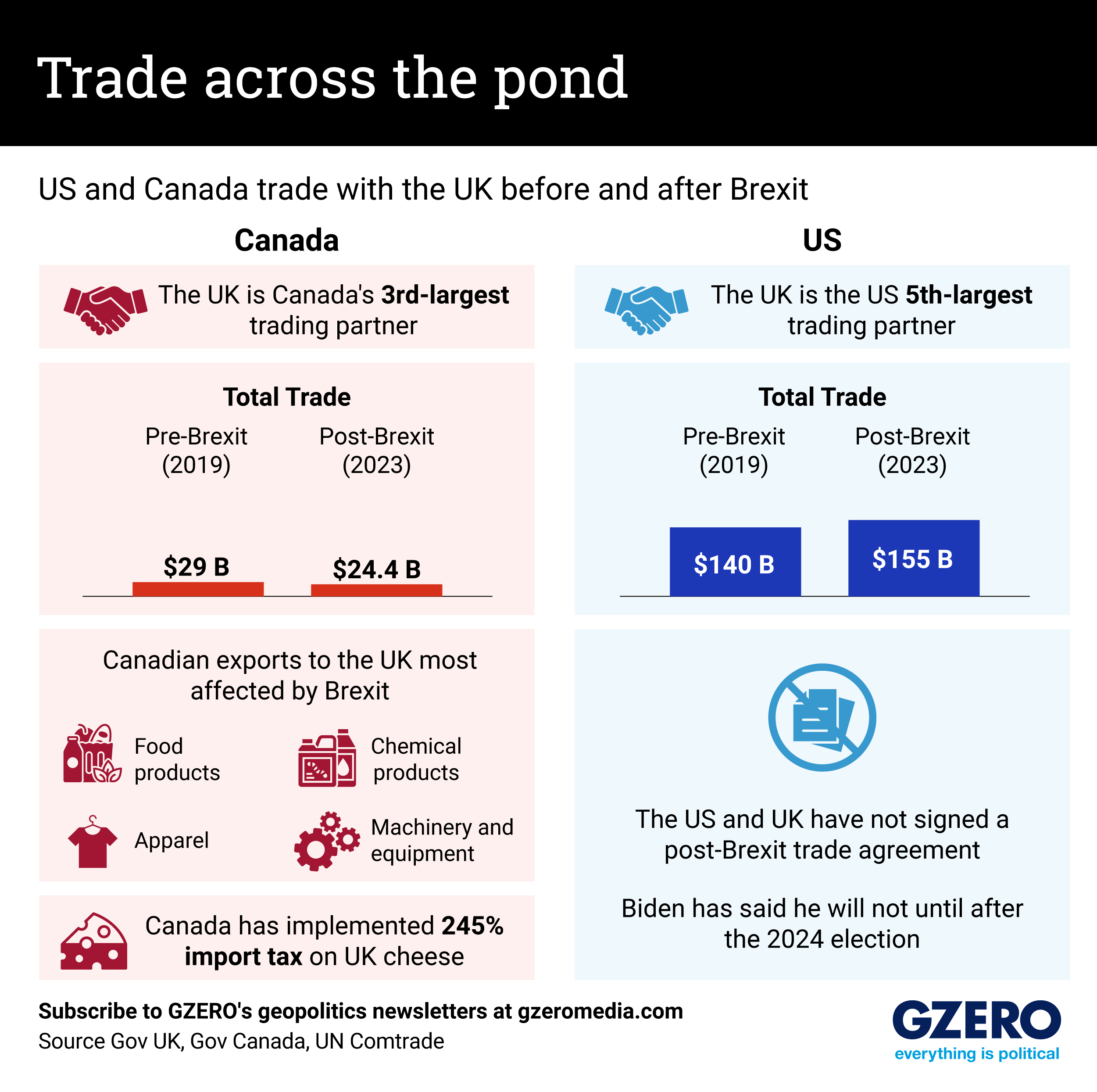Paige Fusco
The UK has struggled to rebuild its trade relationships with partners across the pond post-Brexit. Since leaving the EU in 2020, new trade agreements with Canada or the US have stalled, forcing it to accept many of the same terms it had under the EU.
For Canada and the UK, the terms of their EU agreement expired at the end of 2023, leaving them in uncharted territory. Trade talks broke down over disagreements on cheese, beef, and the automotive industry. The two retreated to the EU terms after negotiators walked away from the table, but Canada still slapped a 245% tariff on British cheese, and the UK refused to budge on restricting hormones in beef, essentially barring both industries from each other's markets.
The UK has been striving and failing to secure a free trade agreement with the US. Last week, the UK’s business secretary blamed Washington’s reluctance to sign a free trade agreement for his country’s failure to hit post-Brexit trade targets. This was telling: Being free to forge its own free trade agreements was a major argument for Brexit. But the US is prioritizing specific deals in areas like semiconductors and critical minerals, and after negotiations fell apart with the UK in December, the Biden administration said it would not revisit the topic until after the 2024 elections.